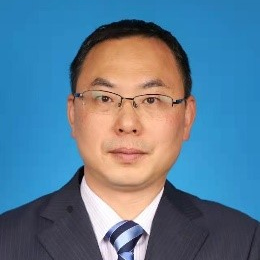Polymers/Metal-Organic Framework Composites for Different Applications
A special issue of Polymers (ISSN 2073-4360). This special issue belongs to the section "Polymer Composites and Nanocomposites".
Deadline for manuscript submissions: closed (20 October 2023) | Viewed by 3544
Special Issue Editors
Interests: adsorption; degradation; heavy metal removal; advanced oxidation; fenton; ozonation; nanomaterials; netal-organic frameworks; water treatment; photocatalysis; wastewater treatment; functional coatings; textiles; environmental science and engineering
Interests: textiles; nanomaterials; nanocomposites; functional coatings; green textile production techniques.
Interests: biodegradable; nonwoven fabrics; metal-organic frameworks; nanocomposites; textile engineering; environmental applications
Interests: plylactic acid; biobased; biogradable; meltblown nonwovens; filtration; metal-organic frameworks; nanocomposites; textile engineering; environmental applications
Interests: non-woven fabrics; characterization; filtration; acoustic properties; thermal Insulation
Special Issues, Collections and Topics in MDPI journals
Special Issue Information
Dear Colleagues,
Worldwide concerned environmental issues are calling for high-effective multi-functional materials to alleviate their negatively impacts on ecosystems and human health. Metal-organic frameworks (MOFs), constructed from organic linkers and metal-oxo nodes, have attracted wide attention in many important applications, such as water decontamination, air purification, green catalysis, and gas storage/separation, because of their structural diversity and functional tunability. However, owing to the undesirable brittle and fragile nature, MOFs cannot be easily processed into separable monoliths for practice without the aid of polymers. The functionality and practicability of MOFs could be efficiently improved by incorporating with the superfine polymer fibers or microporous polymer materials. Therefore, we’d like to launch a Special Issue aiming to advance the development of applications of polymers/metal-organic frameworks composites. Research articles, critical reviews, mini reviews, perspectives, and short communications are all welcome.
The topics of interest for this Special Issue include, but are not limited to, the following:
- The design and fabrication of polymers/metal-organic frameworks composites.
- Polymers/metal-organic frameworks composites for the advanced oxidation processes (AOPs) including Fenton, catalytic ozonation, photocatalysis, etc.
- Polymers/metal-organic frameworks composites for the adsorption process to removal organic/inorganic pollutants.
- Polymers/metal-organic frameworks composites for the air purification and filtration.
- Polymers/metal-organic frameworks composites for the membrane separation process.
- Advanced characterization methods for investigating the structure of polymers/metal-organic frameworks composites.
- Advanced synthesis approaches for producing novel polymers/metal-organic frameworks composites.
Dr. Deyou Yu
Prof. Dr. Minghua Wu
Prof. Dr. Bin Yu
Dr. Feichao Zhu
Dr. Tao Yang
Guest Editors
Manuscript Submission Information
Manuscripts should be submitted online at www.mdpi.com by registering and logging in to this website. Once you are registered, click here to go to the submission form. Manuscripts can be submitted until the deadline. All submissions that pass pre-check are peer-reviewed. Accepted papers will be published continuously in the journal (as soon as accepted) and will be listed together on the special issue website. Research articles, review articles as well as short communications are invited. For planned papers, a title and short abstract (about 100 words) can be sent to the Editorial Office for announcement on this website.
Submitted manuscripts should not have been published previously, nor be under consideration for publication elsewhere (except conference proceedings papers). All manuscripts are thoroughly refereed through a single-blind peer-review process. A guide for authors and other relevant information for submission of manuscripts is available on the Instructions for Authors page. Polymers is an international peer-reviewed open access semimonthly journal published by MDPI.
Please visit the Instructions for Authors page before submitting a manuscript. The Article Processing Charge (APC) for publication in this open access journal is 2700 CHF (Swiss Francs). Submitted papers should be well formatted and use good English. Authors may use MDPI's English editing service prior to publication or during author revisions.
Keywords
- polymers
- metal-organic frameworks
- composites
- synthesis
- characterization
- environmental applications
- antimicrobial applications
- advanced oxidation process
- air purification
- adsorption
- filtration
- separation










